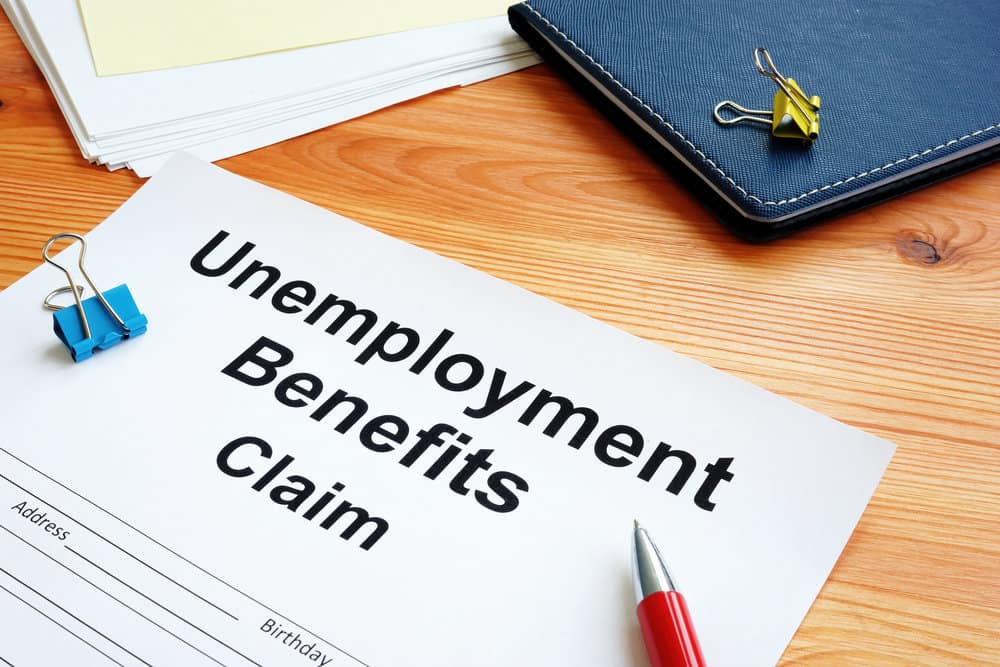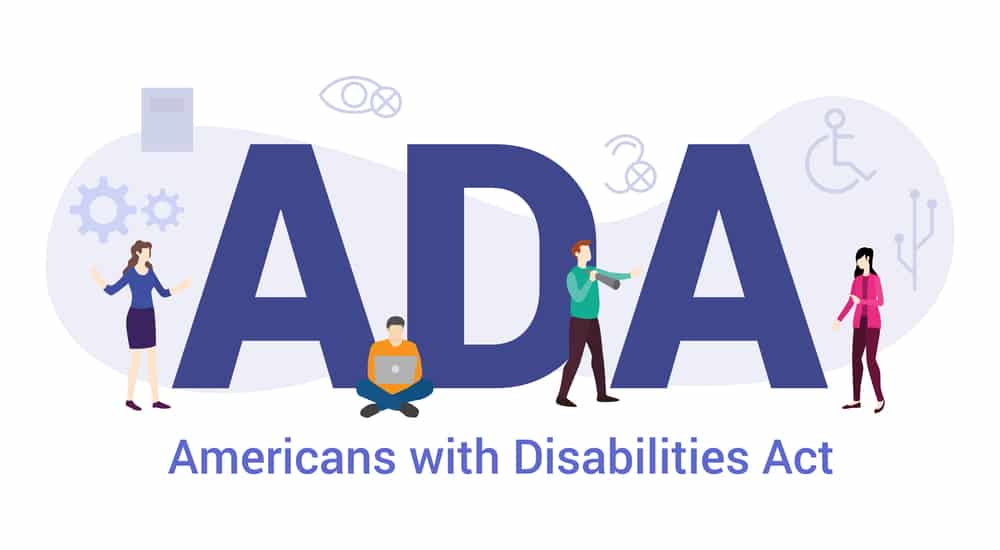Navigating the world of disability and unemployment benefits can be complex and confusing, especially when you find yourself terminated while on disability leave. This article will explore the factors determining whether you can collect unemployment benefits if terminated while on disability. Knowing your rights and understanding the necessary criteria for both disability and unemployment benefits can help you make informed decisions and potentially maximize the support you receive during challenging times.
Disability benefits aim to provide financial assistance to individuals unable to work due to a medical condition. In contrast, unemployment benefits support those involuntarily separated from their jobs and actively seeking new employment opportunities. There may be instances when these two benefits overlap. Still, it’s essential to consider the specifics of your situation, the type of disability benefits you’re receiving, and the regulations governing unemployment in your state.
Key Takeaways
- Navigating disability and unemployment benefits can be complex, especially when terminated while on disability leave
- It’s essential to understand the criteria for both disability and unemployment benefits, as well as your rights and protections
- The specifics of your situation and the regulations governing unemployment in your state will determine if you can collect unemployment benefits while on disability
Understanding Disability and Unemployment
Navigating the world of disability and unemployment can be complex, but it’s essential to understand the basics. This will help you make informed decisions about what benefits to apply for, and how they may work together when you cannot work.
Disability benefits are designed to provide financial assistance to those unable to work due to a physical or mental impairment. In the United States, there are two main types of disability benefits provided by the Social Security Administration (SSA): Social Security Disability Insurance (SSDI) and Supplemental Security Income (SSI). To qualify, your condition must prevent you from performing a substantial, gainful activity for at least 12 months or be expected to result in death.
On the other hand, unemployment benefits serve as temporary financial assistance for individuals who have lost their jobs through no fault. You must seek new employment and meet specific work and wage requirements to qualify for these benefits.
Now, let’s talk about how disability and unemployment can intersect. If you were terminated while on disability leave, it is possible to collect unemployment benefits under certain circumstances. However, receiving both disability and unemployment benefits simultaneously may not always be an option. In most cases, you cannot collect unemployment benefits while receiving SSDI or SSI because collecting unemployment implies that you are able and willing to work.
However, there might be cases where you could be eligible for both. For instance, if you were on short-term disability and recovered fully but were terminated involuntarily while on leave, you could apply for unemployment benefits once ready to return to the workforce.
When considering applying for both benefits, keep these critical points in mind:
- Understand the requirements for each benefit program and how they may impact one another.
- Depending on the severity of your disability, you may qualify for unemployment benefits if you can perform some work. Still, not necessarily at the level you were accustomed to before your disability.
- Ensure you have appropriate documentation for your claims, such as medical records and evidence of your job termination.
Remember, navigating the complexities of disability and unemployment benefits can sometimes be challenging. By understanding the basics and being well-informed, you can take the necessary steps to secure the financial assistance you need while you cannot work.
 When Can You Collect Unemployment if Terminated While on Disability?
When Can You Collect Unemployment if Terminated While on Disability?
Recovering from an injury or illness can be challenging, and losing your job while on disability leave can make the situation even more challenging. However, there are circumstances under which you might be able to collect unemployment benefits if you’ve been terminated while on disability. Let’s explore those situations.
Firstly, suppose you’re on short-term disability, and you fully recover from your injury or illness, but your employer has terminated you involuntarily and through no fault of your own. In that case, you may be eligible to collect unemployment benefits. In this case, ensure you’re actively seeking and ready to accept suitable employment as soon as possible.
While receiving long-term disability benefits, you might think collecting unemployment is out of the question. However, this isn’t always true. There are instances where you could be eligible for both unemployment and long-term disability benefits. If your health improves to the point where you can work part-time or perform limited tasks, you might qualify to collect unemployment alongside your long-term disability payments. The eligibility rules can vary, so consider consulting an attorney or your state’s unemployment office for guidance.
It’s important to note that the Family and Medical Leave Act (FMLA) provides job protection for up to 12 weeks of unpaid leave for eligible employees working for covered employers. But, keep in mind that not all employers are required to follow FMLA rules, and employees must meet specific criteria to qualify. Furthermore, the Americans with Disabilities Act (ADA) offers return-to-work provisions and protections for employees on disability leave. However, being granted short- or long-term disability insurance benefits doesn’t guarantee that your job will be safe.
Collecting unemployment benefits is possible if you’ve been terminated while on disability under specific circumstances. Be sure to understand the details of your disability benefits, unemployment eligibility criteria, and the legal protections that apply to your situation. Keep an open line of communication with your former employer and state unemployment office to ensure you’re taking the proper steps in your journey toward a stable financial future.
Disability Benefits and Unemployment Benefits Overlap
In certain situations, you may explore the possibility of receiving both disability and unemployment benefits simultaneously. Although it is not common, there are instances where these two types of benefits may overlap for individuals. This section will discuss how these overlaps may occur and what factors may affect your eligibility for both benefits.
Offset Clauses
Some long-term disability (LTD) and short-term disability (STD) insurance policies contain offset clauses. These clauses reduce your disability benefits by the amount you receive from other sources, like unemployment benefits. In such cases, you may still be eligible for disability and unemployment benefits. Still, the total amount received might be reduced due to the offset clause in your disability policy.
For example, let’s say your LTD insurance provides $2,500 per month, and you are eligible for $1,000 in unemployment benefits. Suppose you have an offset clause in your disability insurance policy. In that case, your LTD benefits may be reduced by the $1,000 you receive in unemployment, resulting in a new LTD benefit of $1,500 per month.
Third-Party Settlements
In some cases, disability payments may be compromised by third-party settlements, such as personal injury claims or worker’s compensation claims. If you received compensation from a third-party settlement, your disability benefits could be reduced or even terminated.
When reviewing your eligibility for disability and unemployment benefits, it is crucial to consider any third-party settlements that may impact your payments. Consult with your insurance provider and an attorney to fully understand any potential impacts on your disability benefits.
Remember that each situation is unique, and your eligibility for both benefits will depend on state law, insurance policy, and unemployment status. It is essential to review these factors carefully and seek the advice of professionals when navigating this complex territory.
Laws and Acts Governing Rights and Protections
When understanding your rights and protections regarding unemployment and disability, two key federal laws come into play: the Americans with Disabilities Act (ADA) and the Family and Medical Leave Act (FMLA). These laws ensure that workers have certain legal protections and support when dealing with medical conditions or disabilities.

Americans with Disabilities Act
The ADA is a critical piece of legislation designed to protect the rights of individuals with disabilities in various settings, including the workplace. It helps ensure that qualified employees with disabilities have access to reasonable accommodations, which can range from modified work schedules to specialized equipment. However, remember that employers aren’t required to provide accommodations that would result in an undue hardship, such as significant difficulty or expense.
Key takeaway: The ADA provides protection and support for disabled workers, allowing for reasonable accommodations to help them perform their jobs.
Family and Medical Leave Act
On the other hand, the FMLA is a law that guarantees eligible employees the right to take up to 12 weeks of unpaid, job-protected leave within 12 months for certain medical and family-related reasons. These reasons include personal or family illness, the birth and care of a newborn child, and the adoption or fostering of a child. It’s important to note that your employer must continue providing health benefits during your FMLA leave.
To be eligible for FMLA, you must have worked for your employer for at least 12 months and have clocked in at least 1,250 hours during the previous 12 months. Remember that not all employers are covered by the FMLA; it primarily applies to public agencies, public and private schools, and private businesses with 50 or more employees.
Key takeaway: The FMLA grants eligible employees the right to take medical leave while protecting their jobs and retaining health benefits.
By staying informed about the ADA and FMLA, you can more effectively navigate your rights and protections regarding unemployment and disability. Remember that specific rules and eligibility requirements may vary based on your circumstances.
Filing for Unemployment Benefits
When you find yourself in a situation where you are terminated while on disability, you might be wondering if you can collect unemployment benefits. The key is understanding the filing process for unemployment and determining your eligibility.
First, let’s go through the steps to file for unemployment benefits:
- Contact your state’s unemployment agency: Each state has its own rules and procedures, so contact your local agency for accurate information on how to proceed.
- Gather necessary documentation: You must provide proof of your identity, employment history, and earnings. This may include pay stubs, a W-2 form, or even a letter from your employer outlining your job duties and the reason for your termination.
- Complete the application: Take your time and fill out the unemployment benefits application form accurately and honestly. Missing or misleading information can delay your claim or even result in denial.
- Stay in touch with the agency: After filing your claim, it is essential to maintain contact with the agency. Regularly check your application’s status and ensure you meet all the requirements, such as job search activities.
Now, let’s discuss your eligibility for unemployment benefits while on disability. Some factors can affect your ability to collect unemployment benefits:
- Ability to work: To be eligible for unemployment, you must be able and available to work. If your disability prevents you from working, you may not qualify for unemployment benefits.
- Reason for termination: Unemployment benefits are typically granted to those who lose their job through no fault of their own. You may not be eligible for benefits if the termination was due to misconduct or other disqualifying factors.
- Long-term disability policies: If you’re receiving long-term disability benefits, your policy’s terms may impact your ability to collect unemployment benefits. It’s essential to review your policy for any limitations on collecting unemployment while on disability.
In conclusion, it is possible to collect unemployment benefits if terminated while on disability. Remember the factors affecting eligibility and follow the proper steps to file for unemployment. It’s always best to consult with a professional or your state’s unemployment agency for personalized guidance.
Exploring Disability Insurance Policies
When considering your options for collecting unemployment if terminated while on disability, it’s essential to understand various types of disability insurance policies and how they might impact your eligibility.
Long-Term Disability Insurance
Long-term disability insurance (LTD) provides financial support if you cannot work for an extended period. These policies differ in duration and benefits but typically cover 50% to 70% of your salary. LTD policies may also have waiting periods (known as elimination periods) before benefits start, usually anywhere from 30 to 180 days after your disability onset date.
Short-Term Disability Insurance
Short-term disability insurance, on the other hand, covers temporary disabilities that prevent you from working for a shorter duration. These policies generally cover up to 50% to 70% of your salary and typically have shorter elimination periods, ranging from a few days to 30 days. Short-term disability benefits usually last for 3 to 6 months.
Own Occupation Policy
An “own occupation” policy covers you if you cannot perform the specific tasks of your previous job due to your disability. In this case, you may still qualify for benefits, even if you can work in another capacity.
Any Occupation Policy
An “any occupation” policy is more restrictive than an “own occupation” policy. This policy only provides benefits if your disability prevents you from working in any occupation. It considers your skills, experience, and education, making it harder to qualify for benefits.
In evaluating your options, consider the specific terms and conditions of your disability insurance policy and how they relate to your situation. Being familiar with those terms is crucial, as they could determine your eligibility for unemployment if terminated while on disability.
Remember, while navigating these complex insurance policies, staying informed and weighing your options carefully is crucial. Don’t be afraid to seek professional advice to help you make the best decision for your unique circumstances.
Role of Attorneys and Disability Lawyers
Attorneys and disability lawyers can greatly assist when navigating the complex process of collecting unemployment benefits after being terminated while on disability. They have the expertise and experience needed to guide you through the legal intricacies of this situation.
When you find yourself in such a circumstance, it’s vital to consult with a knowledgeable attorney or disability lawyer. These professionals can:
- Assess your case: They can analyze your circumstances and determine if you have a valid claim for unemployment benefits while on disability. This includes reviewing your employment history, the terms of your disability coverage, and any relevant laws or regulations in your state or country.
- Explain your rights: Your attorney or disability lawyer will educate you about your rights under the relevant laws, such as the Americans with Disabilities Act (ADA). They’ll help you understand the protections and exceptions to prevent discrimination or unjust termination based on disability status.
- Negotiate with employers: In some cases, your attorney or disability lawyer may be able to negotiate with your former employer on your behalf. This can lead to a settlement or an agreement that allows you to collect unemployment benefits or other appropriate compensation.
- Represent you in legal proceedings: If it becomes necessary to take your case to court, your attorney or disability lawyer will be there to represent you. They can help you build a strong case and present the best possible arguments supporting your claim for benefits.
Remember, while seeking the assistance of an attorney or disability lawyer may involve some cost, their expertise and knowledge can ultimately save you time and provide valuable support in your quest for unemployment benefits or other compensation. Reach out to a legal professional as soon as possible to discuss your options and begin the process of protecting your rights.
Key Takeaway: Hiring an attorney or disability lawyer can significantly increase your chances of successfully collecting unemployment benefits if terminated while on disability. With their expertise, they can determine the strength of your case, explain your rights, negotiate with employers, and represent you in court.
State Laws and Variances
Each state has its own set of laws and regulations regarding unemployment benefits and disability. This means that eligibility for collecting unemployment while on disability may vary depending on your state. It’s essential to familiarize yourself with your state’s specific requirements to understand your rights and eligibility in such circumstances.
One relevant factor is the FMLA (Family and Medical Leave Act). This act provides up to 12 weeks of unpaid job protection for qualifying employees on disability leave. Your employer must be covered by FMLA, which sets specific standards for protection during your disability leave. Keep in mind that being eligible for FMLA does not guarantee unemployment benefits.
Furthermore, the Americans with Disabilities Act (ADA) protects disabled employees. This federal law features return-to-work provisions, ensuring that employees on disability leave have certain workplace protections. Understanding these provisions and your rights under the ADA is vital in navigating the unemployment process while on disability.
While collecting long-term disability (LTD) benefits, your ability to collect unemployment benefits depends on your specific LTD policy and the duration of these benefits. You may sometimes qualify for SSDI (Social Security Disability Insurance) benefits, potentially providing additional financial assistance during this time.
Here are a few key takeaways to keep in mind:
- State laws vary, so it’s crucial to research your state’s specific regulations.
- Familiarize yourself with the FMLA and ADA laws and how they impact disability leave.
- Pay close attention to your long-term disability (LTD) policy and investigate eligibility for SSDI benefits.
In summary, state laws and variances significantly determine your eligibility for collecting unemployment benefits while on disability. While the FMLA and ADA provide essential protections, it’s still crucial to understand your state’s specific requirements. Remember to stay informed about your rights and benefits during this challenging time.
The Social Security Disability Program
The Social Security Disability Program is designed to offer financial assistance for people who cannot work due to a disability. It’s a crucial lifeline for those in need, and understanding the basics of this program can help you make informed decisions on your financial future.

To be eligible for Social Security Disability Benefits, you must meet specific criteria established by the Social Security Administration (SSA). This includes proving that your disability prevents you from engaging in substantial gainful activity (SGA) – essentially, you are unable to work and earn a living due to your medical condition.
Additionally, your disability must be expected to last at least 12 months or result in death. Remember that there is a waiting period of five months before you can start receiving Social Security Disability benefits from the date your application is approved.
When receiving Social Security Disability benefits, it’s important to know the rules and guidelines established by the SSA. This ensures that you remain eligible to receive financial assistance without any hiccups.
- Notify the SSA of any changes in your medical condition or your ability to work.
- Stay within the established income and resource limits – exceeding these limits may lead to disqualification from the program.
- Maintain regular contact with your healthcare providers and follow their recommendations for treatments and therapies.
Now, the burning question: can you collect unemployment benefits if you’re terminated while on Social Security Disability? The answer is not a simple yes or no, as this depends on various factors, such as the type of disability benefits you receive and the specific rules and requirements of your state’s unemployment office.
For instance, if you are receiving private or employer-funded disability benefits, you may still be eligible to apply for unemployment in some cases. However, if you are enrolled in the Social Security Disability Insurance (SSDI) program, you typically cannot receive unemployment benefits simultaneously. SSDI benefits are based on your inability to work, while unemployment benefits require you to be available and actively searching for work.
In conclusion, understanding the Social Security Disability Program and its guidelines is key to navigating the complexities of disability and unemployment benefits. Always consult with a disability lawyer or your state’s unemployment office to learn more about your eligibility in such situations. Remember, knowledge is power!
What If You’re Wrongfully Terminated?
If you suspect that you’ve been wrongfully terminated while on disability, it’s essential to take action right away. First, try to gather as much information as possible about the reasons for your termination. It might be a good idea to review your employer’s policies and contracts and any federal or state laws that protect employees with disabilities.
Remember, wrongful termination occurs when your employer fires you for reasons against state or federal laws, such as discrimination based on disability status. If you believe that your termination was unjust, the first step you should take is to contact the Equal Employment Opportunity Commission (EEOC). They will help you file a discrimination report and guide you through the process.
While handling your wrongful termination claim, you might wonder if you’re still eligible for unemployment benefits. In most cases, if you’ve lost your job through no fault of your own – which includes wrongful termination – you’ll likely qualify for unemployment benefits. However, guidelines may vary depending on your location, so it’s a good idea to check with your state’s Department of labor for specific eligibility information.
During this time, staying proactive in seeking a new job is crucial. Keep track of your job search efforts, and contact your network for potential opportunities. Even though the process might be challenging, staying engaged in your job search can help you secure a new position more quickly and maintain your eligibility for unemployment benefits.
In summary, if you believe you’ve been wrongfully terminated while on disability, contact the EEOC, seek legal counsel, and check your eligibility for unemployment benefits. Stay proactive in your job search, and remember that you have rights and protections under state and federal laws.
Frequently Asked Questions
Can one receive both unemployment and short-term disability benefits?
While it varies depending on your situation and state laws, you may be eligible to receive both short-term disability and unemployment benefits. Generally, you can’t collect both benefits simultaneously, but in some cases, you could qualify for one after the other. It’s crucial to check your state laws and consult with a legal expert or your state’s unemployment office for specific guidance.
Will my eligibility for unemployment be affected after disability runs out?
Once your short-term disability benefits run out, your eligibility for unemployment benefits will depend on several factors, such as your readiness, availability, and willingness to work. If you’ve fully recovered from your injury or illness and can work, you may be eligible for unemployment benefits if you cannot find a job.
How does being terminated on disability impact unemployment benefits?
Being terminated while on disability could potentially impact your eligibility for unemployment benefits. If you were fired for reasons unrelated to your disability, you might still qualify for unemployment based on your state’s rules and regulations. However, consulting with a legal expert or your state’s unemployment office is essential to understand your rights and eligibility better.
Are there specific state rules for unemployment and disability benefits?
Yes, state rules and regulations for unemployment and disability benefits can differ significantly. Factors such as eligibility criteria, benefit amounts, and duration might vary between states. It’s essential to research and understand your state’s specific laws when determining your eligibility for both disability and unemployment benefits.
What happens if I’m fired for attendance while on disability?
Being fired for attendance while on disability is a complex issue that depends on the specific circumstances of your situation. If you’re on approved medical leave, certain protections like the Family and Medical Leave Act (FMLA) prevent you from being fired. But if you’re terminated for a valid reason, such as not complying with company attendance policies while on leave, your eligibility for unemployment benefits may be affected. It’s best to seek the advice of a legal expert to understand your particular situation better.
Is there a difference in payout between unemployment and short-term disability?
There can be significant differences in payout amounts between unemployment and short-term disability benefits. Unemployment benefits are typically a percentage of your previous income. In contrast, short-term disability benefits might be a fixed amount based on your salary or a percentage of your regular earnings. It’s important to consult with your state’s unemployment office and your disability insurance provider to understand the exact amounts you may be eligible to receive.

 When Can You Collect Unemployment if Terminated While on Disability?
When Can You Collect Unemployment if Terminated While on Disability?


